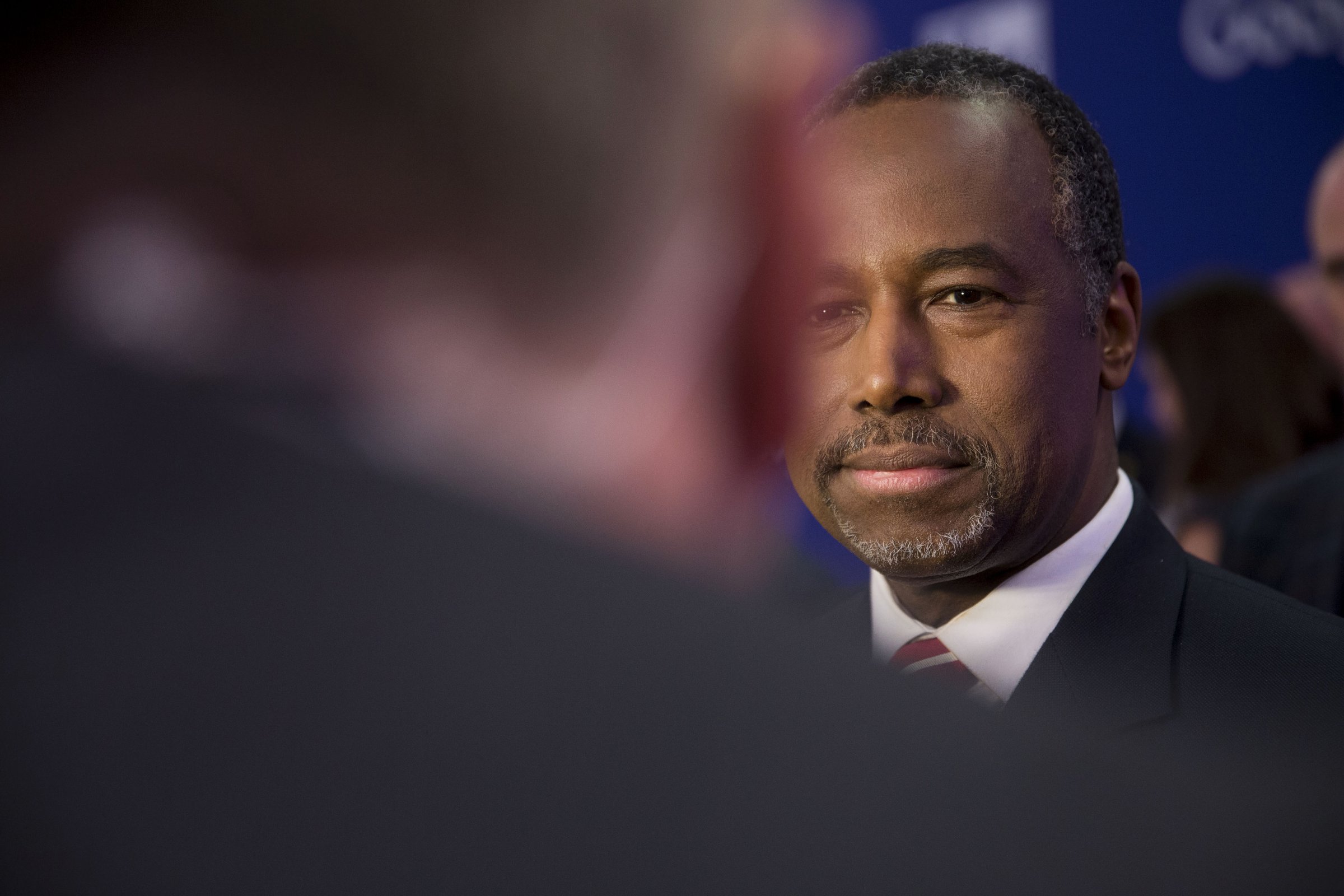
For New Jersey Gov. Chris Christie, getting 7% of the vote in New Hampshire was enough to sink his campaign. For former Hewlett-Packard CEO Carly Fiorina, the magic number was 4% in New Hampshire, and for Kentucky Sen. Rand Paul it was 4.5% in Iowa.
But for retired neurosurgeon Ben Carson, who is in fifth place at 6% ahead of Saturday’s South Carolina primary, it’s not yet clear that number is a problem.
“We’re on a delegate gathering strategy right now,” Carson strategist Jason Osborne told TIME Wednesday. He outlined a vision where Carson can continue finishing fourth, fifth or even sixth in primaries and caucuses, but accrue delegates from proportional states along the way. “Only one person is going to get any in Florida, so it’s almost like why bother even competing there?” Osborne said.
Carson has made it a centerpiece of his campaign from the outset that he would not engage in negative campaigning against other candidates. In the bloodsport politics of South Carolina, with Texas Sen. Ted Cruz, Florida Sen. Marco Rubio and businessman Donald Trump all volleying insults and accusations at each other, Carson’s team hopes their candidate can skate through while the others emerge badly bruised or fatally wounded.
“In a six-person race where there’s a lot of fluidity and everybody is attacking each other except for us, I think we have a legitimate reason [to stay in],” Osborne said. “The money is still coming in, so why not stay in? And if we’re getting delegates, and you can get through Super Tuesday and we’re still picking up delegates, and a couple other folks drop off, there’s some opportunities out there for us.”
Still, a disappointing finish in South Carolina would have to shake confidence in Carson’s viability as a candidate. The campaign has its hopes pinned on the South— Carson’s strong faith and morality lessons on the stump are more likely to resonate with Southern voters than in the more secular states (he finished with just over 2% in New Hampshire). Osborne has cited South Carolina along with Nevada, Alabama and Georgia as the specific states in which he thinks Carson will make a strong finish.
Despite Carson’s tax plan based on tithing and prolific citing of Bible verses on the trail, twice-divorced, formerly pro-choice Donald Trump holds a wide lead with evangelical voters in South Carolina: 42% to Carson’s 5%. (Cruz comes in second with those voters at 23%.)
If it does come time for Carson to exit the race, Osborne says it won’t come down to numbers, anyway.
“That’s something that he reflects on a lot,” Osborne told TIME ahead of the Iowa caucus. “Certainly staff-wise we’re going to give him our best guess, but ultimately he’s the one that decided he wanted to get into this race after the thousands and thousands of petitions that he got and a lot of prayer, so I think that’s the same process he’ll go through no matter what the outlook is. If we come in first or last, that’s how he makes decisions like this: the advice of us, and then his own self reflection.”
More Must-Reads from TIME
- Why Trump’s Message Worked on Latino Men
- What Trump’s Win Could Mean for Housing
- The 100 Must-Read Books of 2024
- Sleep Doctors Share the 1 Tip That’s Changed Their Lives
- Column: Let’s Bring Back Romance
- What It’s Like to Have Long COVID As a Kid
- FX’s Say Nothing Is the Must-Watch Political Thriller of 2024
- Merle Bombardieri Is Helping People Make the Baby Decision
Write to Tessa Berenson Rogers at tessa.Rogers@time.com